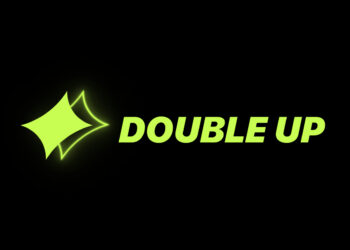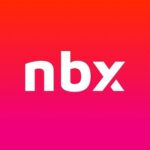Last updated on December 1st, 2021 at 05:28 pm
Algorand and Cardano are currently taking the blockchain world by storm with their innovations and plans. Cardano, as at the time of writing this, recently released its smart contracts feature after its successful Alonzo hard fork. This came after years of crypto enthusiasts waiting for Cardano to fulfill its promises.
Many of the new generation blockchains were created to solve the issues noticed in older blockchains. Major issues that are being handled are linked to the blockchain trilemma. Algorand and Cardano are two of those networks that are actively trying to nip these problems in the bud. The blockchain trilemma is linked to speed, security, and decentralization simultaneously.
Which Is A Stronger Competitor- Algorand or Cardano?
Both platforms have their strengths and weaknesses. To choose the stronger competitor, both platforms will be analyzed.
What is Algorand?
As a solution to the trilemma, Algorand focuses on improving the speed of decentralized payment, which is its scalability. It is a permissionless blockchain that wants to attain near-instant finality.
Algorand’s origin is traced to Silvio Micali, a notable computer scientist. According to his biography, “Silvio Micali has been on the faculty at MIT, Electrical Engineering and Computer Science Department, since 1983. Silvio’s research interests are cryptography, zero-knowledge, pseudorandom generation, secure protocols, mechanism design, and blockchain. In particular, Silvio is the co-inventor of probabilistic encryption, Zero-Knowledge Proofs, Verifiable Random Functions, and many of the protocols that are the foundations of modern cryptography.
In 2017, Silvio founded Algorand, a fully decentralized, secure, and scalable blockchain that provides a common platform for building products and services for a borderless economy. At Algorand, Silvio oversees all research, including theory, security, and crypto finance.”
The consensus mechanism on this network is pure proof-of-stake (PPOs), meaning that the probability of a validator being chosen to create a new block is dependent on the amount of their stake or tokens. Validators are chosen at random to propose blocks, then vote on them. With the gas fees on Ethereum, many are turning to Algorand to build their scalable decentralized applications.
A crucial aspect of this platform is its cross-chain ability, which is linked to the Algorand Standard Asset (ASA) feature. ASAs can be likened to the ERC20 assets noticed on the Ethereum chain. This protocol makes it easy for existing tokens to be moved into the platform. New tokens can also be created by developers that are creating their dApps on Algorand with this feature. Building on this blockchain is quite seamless because of its high scalability, affordable transaction fees, and flexibility. Some countries are currently building their CBDC in Algorand. Marshall Island will build its CBDC on Algorand.
The Architecture of Algorand
To improve scalability, Algorand added a twist in the architectural structure of its network by creating two layers. The foundational layer hosts the atomic swap features that make it easy for different assets to be swapped. It also has smart contracts, as well as asset creation functionalities. At this layer, it is easy for community members to carry out minor smart contract transactions, while creating ASAs. Usually, the smart contracts that happen on this layer are called the Layer-1 Algorand Smart Contracts (ASC1s).
On the upper layer, more complex smart contract transactions occur. This is where developers build their decentralized apps with different functionalities. Dividing the layers improves the scalability of transactions, meaning that minor smart contract transactions can occur on the first layer without worrying about what happens on the second layer.
What is Cardano?
Cardano has been in the blockchain space longer than Algorand because it started in 2015, though its native token, ADA was launched two years later. It recently released its long-awaited smart contract feature and has become quite a household name in the blockchain space.
Cardano, like other blockchains after Ethereum, wants to solve the problems noticed in the forerunner of smart contracts technology. The founder of Cardano was a founding member of Ethereum.
Charles Hoskinson was one of the eight-team members that founded Ethereum. He is also linked to BitShares. At one point, he left Ethereum after a rift with other founders like Buterin.
Hokinson ran a blockchain educational online school, and that was where he met Buterin. During a meeting on the development of the Ethereum project, Hokinson felt that they should use venture capital to grow, but Buterin felt that it was not a great idea. The latter wanted the structure to be not-for-profit and open source.
Cardano is solving the blockchain trilemma by offering smart contract features for developers to create their decentralized apps. It is offering a network that is not sacrificing the key elements of blockchain technology.
Like other third-generation blockchains, Cardano uses a variation of the proof of stake consensus mechanism. In this case, it is called the Ouroboros. According to Cardano:
“Ouroboros applies cryptography, combinatorics, and mathematical game theory to guarantee the protocol’s integrity, longevity, and performance, and that of the distributed networks that depend upon it. Ouroboros is the first provably secure proof-of-stake protocol, and the first blockchain protocol to be based on peer-reviewed research. Ouroboros combines unique technology and mathematically verified mechanisms – which, in turn, combine behavioral psychology and economic philosophy – to ensure the security and sustainability of the blockchains that depend upon it. The result is a protocol with proven security guarantees able to facilitate the propagation of global, permissionless networks with minimal energy requirements – of which Cardano is the first.”
Usually, the network is controlled by stake pools, and every stake pool has a slot leader. The duty of a leader is to validate transactions and create new blocks. As a PoS chain, staking is done, meaning that every token holder can decide to stake their tokens with any stake pool in the ecosystem. The probability that a stake pool will be chosen to be a slot leader is dependent on the number of tokens that it has.
Differences Between Algorand and Cardano
- Consensus Mechanism
Both Algorand and Cardano use different versions of the Proof of stake consensus mechanisms. Algorand uses Pure Proof of Stake, while Cardano uses the Ouroboros Proof of Stake.
- Language
The native languages on Cardano are Plutus and Haskell programming languages, while Algorand utilizes the transaction execution approval language like JavaScript, Python, Java, and Go.
- Underlying purpose
Cardano was created to make it easy for developers to build their decentralized apps, while Algorand’s core focus is to improve scalability.
Similarities between Algorand and Cardano
- Highly scalable
Both blockchains are highly capable because of their architecture. Algorand has two layers, while Cardano utilizes the Ouroboros to improve its transaction speed.
- Smart Contracts
Both Algorand and Cardano have smart contract features that developers can use in creating their decentralized apps.
- Presence of Development Tools
Developers can build their native tokens on both Algorand and Cardano. While they create decentralized apps, developers can easily churn out the utility tokens to govern their apps.
- Variations of the Proof of Stake Mechanism
The networks are designed to consume lower energy compared to the first and second generations of blockchains. Since they use a variation of the Proof of Stake consensus mechanism, they do not have to consume much energy to function effectively.
Use Cases of Algorand
At the moment, numerous organizations are building their platforms on Algorand. Many of them include financial platforms, not-for-profits, and even governments. It is not surprising that many of them are opting for Algorand because the features it offers are interesting.
Below are some organizations that are currently building on Algorand.
- Marshall Islands
The US government is in the process of building its CBDC in Algorand. According to Algorand; “Algorand was selected to power the first national digital currency, known as the SOV, which will circulate alongside the US dollar and help the Marshall Islands efficiently operate in the global economy.”
- Yieldly
The government is not alone in trying out the features that Algorand offers. Yieldly is a platform that is focusing on offering crypto users access to transactions that are free from security problems, friction, and much more. It has the support of popular financial firms. The above are two of the hundreds that are building on Algorand.
- Circle
Circle, a blockchain-related company that creates solutions for businesses and individuals, is currently building on Algorand. The company is the co-founder of the popular stablecoin, USDC.
- Republic
Republic, a private investment company that caters to firms and individuals globally is currently working on Algorand to build innovations.
- IDEX
This leading decentralized smart contract exchange is currently building its innovations on Algorand.
Some Use Cases of Cardano
Developers can write smart contracts and execute them seamlessly. Though the smart contract feature is still new, as at the time of writing this, there are still some projects building on it.
- Crypto Mage
Crypto Mage is a fantasy game that is focused on wizards, and exploration. Gamers can act like wizards and enjoy the feature that comes with it.
- Daedalus
This is a full node that is being created by IOHK, one of the teams behind Cardano.
- SUNDAESWAP
This decentralized trading protocol is creating its architecture on the Cardano blockchain.
- NFTDOT.IO
NFTDOT.IO is an NFT platform that offers low-cost token and asset creation for content creators and businesses. It is currently being built on Cardano.
- MELD
MELD is a DeFi non-custodial banking platform that wants to enjoy the features that Cardano blockchain is offering.
In Conclusion,
Algorand and Cardano have some glaring similarities like:
- Being highly scalable
- Having low energy consumption
- Having development tools for developers.
Their differences are also visible, which can be seen in their consensus mechanisms and underlying purposes. Though both platforms are relatively new in their innovations, they are still offering innovations.





















